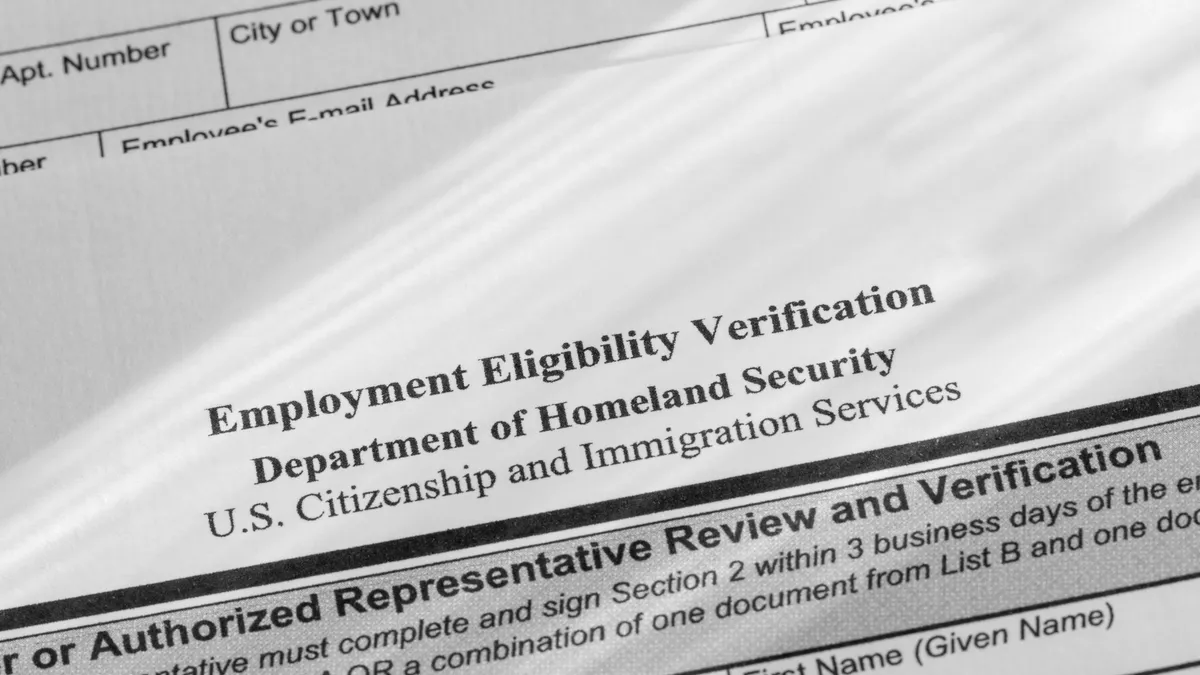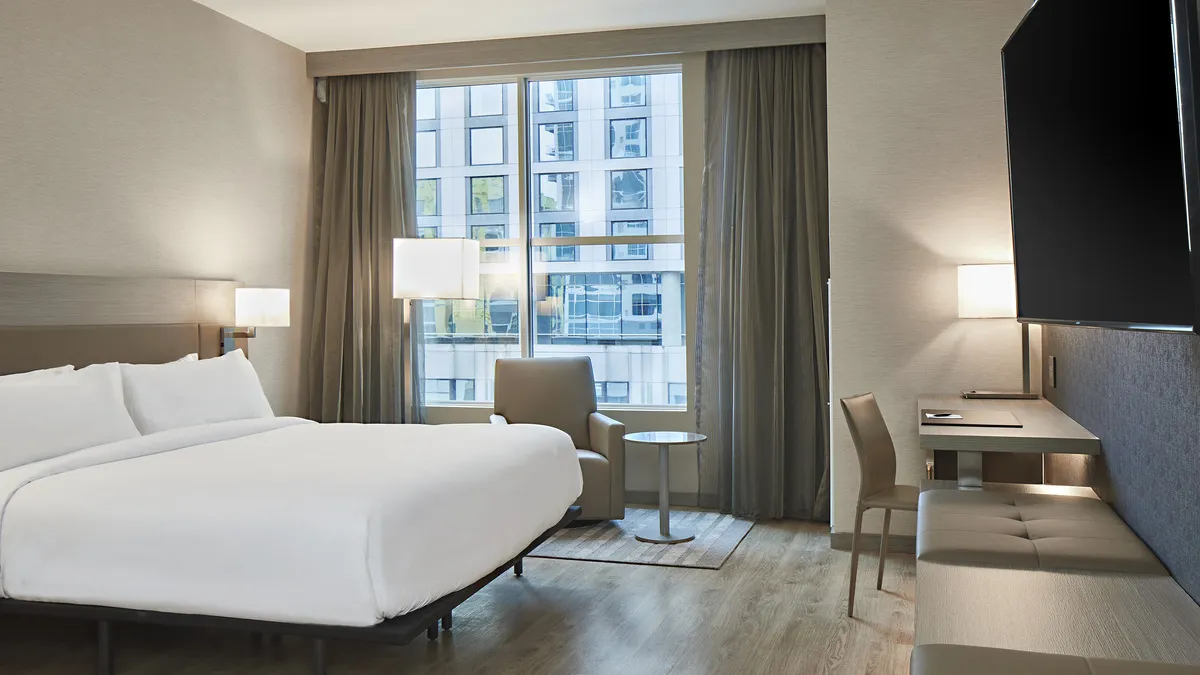The following is a guest post from Damian Conforti, Brent Pohlman and Frank Custode of Mandelbaum Barrett PC. Conforti is a partner and co-chair of the law firm’s Hospitality Services Practice. Pohlman and Custode are both partners in the firm’s Labor and Employment Practice. Opinions are the authors’ own.
The hospitality industry was the third-largest employer of undocumented workers in the U.S. in 2023, with more than 7% of its workforce — more than a million workers — falling into that category, according to the American Immigration Council.
Following President Trump’s January executive order, Immigration and Customs Enforcement raids are expected to increase. Hotel owners and managers, therefore, need to know their rights, obligations and best practices.
Implications for hospitality workers, owners and management
Trump’s executive order set new enforcement policies for the Department of Homeland Security, directing it to prevent illegal entry and unlawful presence in the U.S. by limiting humanitarian parole, Temporary Protected Status and employment authorization. As a result, civil and criminal penalties for undocumented workers who fail to register their presence in the U.S. are likely to occur.
Hospitality industry employers, however, have always been required to maintain I-9 forms and verify all employees’ identity and authorization. Trump’s order emphasizes that need.
Importantly, hotel employers must examine each employee’s documentation under a DHS-authorized remote procedure or in-person. Furthermore, hotel owners should proactively train managers on Form I-9 compliance, and these managers should retain employee records for three years following their hire date or one year after their termination, whichever is later. Management should also designate teams responsible for performing self-audits for each workplace location.
However, hotel employers should not request more — or different — documents than those required to verify employment eligibility. They should also avoid discrimination based on workers’ national origin, citizenship or immigration status. This is a violation of federal and state laws, and can expose the employer to fines or penalties.
Responding to ICE raids
A subagency of DHS, ICE is tasked with enforcing U.S. immigration laws, including conducting unannounced “raids.” Since ICE agents don’t need a warrant to conduct such raids, it’s important for employers to have clear crisis management response plans in writing that protect their business and employees alike.
Hoteliers should have a designated company representative at each location who is trained in ICE interactions. This should be the only person interfacing with ICE agents. Any front desk staff or greeters should be trained to contact the designated company representative when ICE agents arrive.
Then, the designated company representative should request identification to verify the ICE agent’s credentials and obtain a copy of any warrant. The representative should also tell the agent there is a company policy that requires them to contact company leadership and legal counsel, if necessary, to review the warrant, and forbid warrantless searches of private areas. This person should also call an attorney immediately.
It’s important to understand the scope of the raid. ICE agents may enter public areas of the business — which are accessible to any customer, such as lobbies, waiting areas, restrooms and dining facilities — without permission. If an ICE agent encounters a worker in a public area, the worker does not have any obligation to speak to the agent.
A valid judicial warrant, however, gives the agent a legal right to enter non-public areas of a hotel’s premises and inspect the documentation specified in the warrant. In the case of such an event, be organized. Know where your documents are — these are likely to be payroll and time records, I-9 forms and employee identification — and only provide access to the documentation requested in the warrant.
You are permitted to follow the agents and document what they do, either with notes or by recording.
Best practices for preparing employees
If you own or manage a hotel, you should train employees on how to interface with ICE agents. You may tell them they can choose whether or not to speak with ICE agents, or ask to have a lawyer present before speaking with one.
Do not, however, tell employees not to cooperate or refuse to answer questions. Also do not help employees hide from officers or leave the premises in the event of a raid.
You should instruct employees to keep copies of their documents on hand and ensure they are valid.
Raids can last hours. If you know one of your employees has specific issues, such as medical or family concerns, raise them with the ICE agent and ask for cooperation in accommodating their needs.
An investigation does not necessarily end after ICE leaves your hotel. Items seized during the raid will be reviewed, and an investigative process will likely take months. Being prepared will put your teams in the best possible position to respond in quick order.

















